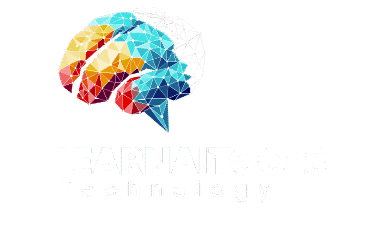
Global finance analysis and big data research concept . Futuristic screen showing large statistic information for business and marketing decision making .
Introduction
AI Governance 2025 is becoming one of the most vital aspects of artificial intelligence in today’s world. As AI systems take on a greater role in shaping healthcare, education, finance, and decision-making, the urgency for clear rules, accountability, and ethical frameworks is at an all-time high. AI is no longer futuristic—it is a part of our everyday lives. Without proper governance, the risks of bias, security breaches, and misuse could overshadow the benefits.
AI Governance 2025 represents the effort to create balance: ensuring innovation continues while safeguarding fairness, privacy, and human rights. Policymakers, businesses, and researchers are now working together to create models that ensure AI serves society responsibly.
Why AI Governance Matters in 2025
AI Governance 2025 demonstrates the responsibility of governments, corporations, and institutions to regulate AI usage. Whether in banking, healthcare, or law enforcement, AI-driven decisions can impact millions. Clear governance structures ensure transparency, accountability, and ethical integrity.
Without governance, AI could worsen inequalities or even threaten democratic processes. With strong governance, however, AI builds trust, fosters innovation, and creates a safer technological ecosystem.
Core Principles of AI Governance 2025
AI Governance 2025 is shaped by fundamental values and principles that aim to make AI trustworthy:
- Transparency – AI systems must provide clear explanations for their decisions.
- Accountability – Developers and organizations must take responsibility for AI-driven outcomes.
- Fairness – AI tools must work to reduce bias rather than reinforce it.
- Privacy and Security – User data must be protected with robust safeguards.
- Sustainability – AI systems should support long-term human and environmental well-being.
These guiding principles are now being embedded into national laws and corporate strategies worldwide.

Global Approaches to AI Governance
AI Governance 2025 varies globally, with different regions adopting unique models:
- European Union (EU): The EU’s AI Act is setting a precedent for risk-based AI regulation.
- United States: Emphasis is on promoting innovation while preventing harmful uses in defense and finance.
- China: AI governance aligns closely with national priorities in technology leadership and cybersecurity.
- India: Policies focus on responsible AI in healthcare, education, and agriculture to strengthen the digital economy.
Despite regional differences, collaboration across borders is increasing, pointing toward global standards for responsible AI.
AI Governance in Businesses
AI Governance 2025 is especially important for businesses adopting AI for recruitment, financial analysis, marketing, and supply chain optimization. Without governance, these processes risk bias, unfair treatment, or regulatory backlash.
Business-focused AI governance helps ensure:
- Equal opportunity in AI-assisted hiring.
- Full compliance with global data protection laws.
- Ethical customer profiling and marketing.
- Clear accountability for algorithm-driven decisions.
Companies with strong AI governance earn consumer trust, which has become a major competitive edge in 2025.
AI Governance in Healthcare
AI Governance 2025 is crucial for healthcare, where AI systems are diagnosing diseases, analyzing scans, and helping with treatment planning. Governance frameworks guarantee:
- Accurate and reliable diagnostic systems.
- Strict data privacy for patients.
- Ethical use of medical AI in research and clinical practice.
By integrating governance into healthcare, hospitals and researchers build trust and ensure AI strengthens, rather than weakens, patient care.
Challenges in AI Governance
AI Governance 2025 faces several obstacles:
- Global Differences: Diverse laws and standards complicate universal adoption.
- Pace of Change: AI technology evolves faster than regulations.
- Bias in Training Data: Even with oversight, hidden biases can appear in AI results.
- Enforcement: Ensuring compliance across industries remains difficult.
These challenges highlight the need for continuous collaboration among governments, industries, and communities.
The Road Ahead for AI Governance 2025
AI Governance 2025 will evolve as AI becomes more powerful and integrated into daily life. The coming years will focus on:
- Global Collaboration – International treaties and alliances on AI ethics.
- Human-Centered AI – Ensuring human well-being is prioritized.
- Adaptive Regulations – Flexible policies that adjust to new AI breakthroughs.
AI governance will serve as a foundation for building trustworthy, ethical, and innovative technological systems worldwide.
Conclusion
AI Governance 2025 is not optional—it is essential for the responsible future of artificial intelligence. Governance ensures AI remains ethical, fair, and transparent while enabling innovation across industries. Governments, organizations, and individuals that embrace governance frameworks today will lead responsibly into tomorrow.
The future of AI lies not just in how powerful it becomes but in how responsibly we choose to use it. With robust AI governance, humanity can ensure that technology truly works for the greater good. To explore more about the latest AI tools and insights, visit Learn Ai Tools.




